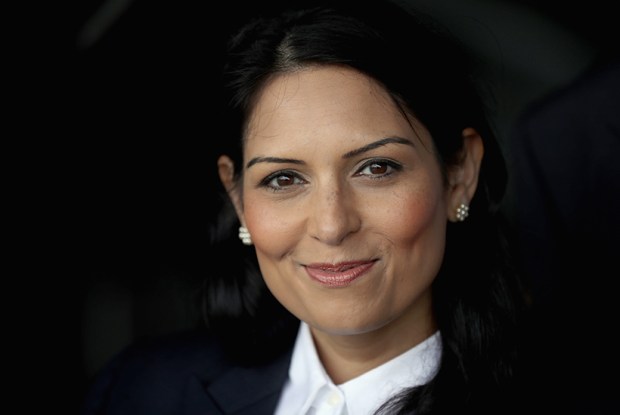You can buy the latest edition of Thomas Erskine May’s Parliamentary Practice for just over three hundred quid, but I wouldn’t advise it. Short on jokes, in my opinion. A product of its time, fastidious early Victoriana striving desperately for the coming paradigm: scientism. Old Erskine was possibly the bastard offspring of one of our better lord chancellors, the libidinous Whig Thomas Erskine, who was born in Edinburgh and served under Grenville and Fox in the supposed ‘Government of All the Talents’ — as opposed to the one we have now, which is the ‘Government Of No Fucking Clue Whatsoever’. Thomas Erskine was a proponent of parliamentary reform and acted as defence counsel for Thomas Paine, which is chiefly why he is remembered — i.e. as a Georgian leftie, a kind of early and probably less irritating Michael Mansfield.
Of east coast Scottish ancestry, then, our Erskine May — which you would recognise in his pernickety prose. Frankly, he makes Thomas Carlyle resemble Irving Welsh. You want lengthy subordinate clauses? He’s got ’em. I assume somewhere along the line he’s related to the Aberdonian Jim Naughtie, famous for his multiply-qualified questions which ended only when the pips began to squeak on the Today programme and the interviewee had given up the ghost and gone home. There is something about the east coast Scots, their joyless punctiliousness and sense of propriety. I had relatives living up there and they were a pretty dour crowd, perpetually lashed by wind, rain and their singularly unforgiving brand of Protestantism. I seem to remember that I wasn’t allowed to smile on a Sunday.
As clerk to the House of Commons, May published his treatise in 1844, the same year Dickens published arguably one of his weaker novels, Martin Chuzzlewit. I assume the current Speaker of the House of Commons, John Bercow, received a copy on his birthday on 19 January this year — perhaps as a gift from his fun-lovin’ leftie wife, Sally, along with the usual pair of stack heels. ‘Here, love, have a look at this — you might find it interesting, given your job.’ Precedent and formality of procedure, as tirelessly delineated by Erskine May, had hitherto never appeared to trouble the hilariously bumptious and self-publicising Speaker. Indeed, shortly before his birthday he had trampled all over the very idea that one should, as a Speaker, follow any form of precedent.
In a bizarre decision on 9 January, Bercow allowed an amendment by the former attorney general Dominic Grieve to be added to the government motion recommending a Brexit deal and which forced Theresa May back into the House of Commons ‘within three days’ of that deal’s defeat, to explain a possible Plan B. Challenged on this breach of precedent, the puffed-up little chimp announced: ‘If we were guided only by precedent, manifestly nothing in our procedures would ever change.’
Two months later he had altered his position somewhat, reaching back, via Erskine May, to 1604 and the stipulation that a government should not waste the time of the House by repeatedly bringing before it ‘substantially’ the same piece of proposed legislation. This meant in effect that Theresa May would be barred from putting her Brexit deal before the House even though members of the European Research Group and the Democratic Unionist Party had seen enough of a change in it to have persuaded them to support the deal.
There are, mercifully, plenty of ways in which the government can circumvent the continued biased interventions from this little squit. But as the BBC’s Laura Kuenssberg put it: ‘There is festering concern about John Bercow’s suspected wish to stop Brexit — always denied. This time the Speaker, whose job it is to stand up for parliament, has — with no warning — made a decision that some in government believe veers too close to trying to block the government from what it seeks to do.’
It is for this kind of thing that Bercow is now lionised by the likes of the Guardian, a far cry from his days as a member of the Federation of Conservative Students, an organisation that campaigned for the hanging of Nelson Mandela. Today the Guardian and the liberal left consider Bercow ‘brave’ in thwarting a tyrannical government. You take your allies wherever you can find them, I suppose. If they’re opposed to Brexit and in a position of power, they’ll do just fine. For the same reason we have seen Anna Soubry commended for her bravery by David Aaronovitch in the Times. Bercow owes his longevity as Speaker to his grandstanding and obstreperousness towards the government, which has made him, perversely, almost impossible to shift. He would argue that far from bias, his aim has always been to wrest power from the executive and into the hands of the House of Commons.
Brave is an epithet applied not simply to Bercow and the benighted Soubry, of course. It refers to anyone determined to prevent the UK leaving the European Union. Gina Miller was brave in taking the government to court and even more so the judges who ruled in her favour. The House of Lords was brave in its attempts to stop Brexit, so too the Commons, with its huge Remainer majority. The BBC wasn’t brave during the referendum campaign, but has become much braver now, pointing out at every juncture how Brexit will leave us in the poorhouse. The Archbishop of Canterbury is brave to raise, balefully, the issue.
The MPs who originally voted Remain but are now pledged to support their Brexiteer constituents and the mandate itself are not brave; it is the Remainers trying every possible trick in the book to halt the process who are lauded. Bercow is just the most visible symbol of the establishment using technicalities and chicanery to subvert the will of the people. Could I suggest that it is comparatively easy to be brave when you have the entire establishment behind you?
Got something to add? Join the discussion and comment below.
Get 10 issues for just $10
Subscribe to The Spectator Australia today for the next 10 magazine issues, plus full online access, for just $10.
You might disagree with half of it, but you’ll enjoy reading all of it. Try your first month for free, then just $2 a week for the remainder of your first year.



![The Little Drummer Girl [Photo: BBC]](https://www.spectator.com.au/wp-content/uploads/2018/12/16729426_low_res_the_little_drummer_girl_1.jpg?w=620)











Comments
Don't miss out
Join the conversation with other Spectator Australia readers. Subscribe to leave a comment.
SUBSCRIBEAlready a subscriber? Log in